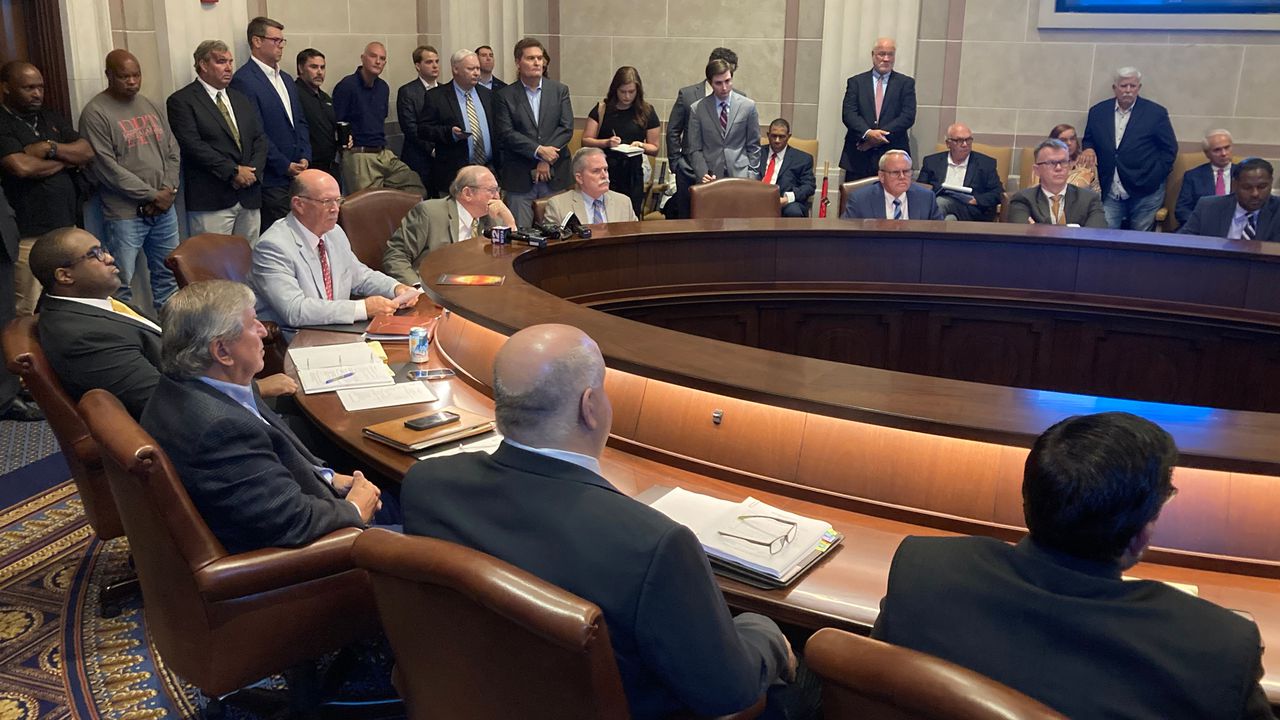Judge puts another hold on Alabama medical cannabis licenses
The start of Alabama’s new medical marijuana industry has hit another snag.
Montgomery County Circuit Judge James Anderson said in court Thursday he will put a temporary hold on the issuance of licenses by the Alabama Medical Cannabis Commission after hearing arguments from lawyers representing companies denied a license that the commission violated the Open Meetings Act.
Anderson said it is his goal to resolve the dispute as quickly as possible. Anderson scheduled a hearing on the alleged violation for August 28.
“The court is concerned about how long this process is taking,” Anderson said. “The Legislature passed this and this is something that needs to get finalized.”
The Legislature authorized medical marijuana in 2021 and created the AMCC to oversee the seed-to-sale regulation of the new industry. AMCC officials have said they hoped products could be available by the end of this year. But the process of granting licenses to cultivators, processors, transporters, dispensers, and testing labs has now stalled twice.
The new delay comes after the AMCC awarded licenses to 24 companies out of 90 applicants on August 10. That started an investigative phase for the commission to inspect sites and make some other checks in preparation for issuing licenses at a meeting on August 31.
Thursday’s decision by Anderson puts the timeline on hold.
The dispute is over what happened during a closed portion of the August 10 meeting.
The AMCC voted to go into executive session, or closed session, shortly after the meeting began. The Open Meetings Act allows public boards to close their meetings for certain purposes but not to vote or take official action during the closed portions of a meeting.
During the closed part of the August 10 meeting, the commissioners filled out forms for their nominees for license awards in each of the six categories. AMCC attorney William Webster said the commissioners did not share their lists.
When the meeting reopened to the public after three hours, AMCC staff compiled a list of the nominees. The commission then took roll call votes on the nominees, awarding the 24 licenses in the six categories.
Only the applicants that were included on the lists that the commissioners filled out during the closed portion of the meeting were considered during the open portion of the meeting.
Wallace Mills, an attorney for Specialty Medical Products of Alabama, told the judge that the nominations were, in effect, votes that eliminated many of applicants, votes that he said were illegal to take during the closed portion of the meeting.
“We can call it a nomination if we want to,” Mills said. “But we routinely nominate people by vote. That was a vote.”
Mills said the AMCC also violated the Open Meetings Act by discussing the professional and business capabilities of license applicants during the closed portion of the meeting.
AMCC attorney Webster said those discussions fell under a provision in the Open Meetings Act that allows public boards to discuss issues “general reputation, character, and professional competence of individuals” during closed sessions.
Mills said discussions about whether applicants were qualified to perform as medical cannabis licensees did not fall under a that exception.
Webster said the AMCC held those discussions in private for the benefit of the applicants. But he said if the AMCC is forced to repeat the license award process, that would not happen again.
“We are done protecting anybody’s reputation and character,” Webster said. “We will put forth everyone’s dirty laundry and everyone will hear about it.”
AMCC Executive Director John McMillan said it is impossible to say how the latest disputes could affect when medical cannabis products will be available.
“We all try to be optimistic in trying to get this program up and going,” McMillan said. “But challenge after challenge just seems to be popping up. And that was one thing I was glad to hear Judge Anderson say was he wants to consolidate some of this stuff and move along. That’s our main goal.”
William Somerville, an attorney for Alabama Always, one of the companies that claimed the Open Meetings Act violation, said the AMCC is to blame for any delays.
“The delay has been caused by their refusal to follow the law on every turn,” Somerville said. “They keep on doing things they shouldn’t do. And they keep on being stopped. So, if they would do things the right way, we wouldn’t have these delays.”
The first delay in the licensing process came after the AMCC awarded licenses on June 12, choosing 21 companies out of the 90 applicants.
Four days later, the AMCC put a hold on those awards after announcing it had found potential inconsistencies in how scores to help rank the applicants were tabulated. The licenses were not issued.
The AMCC said the scores were corrected and verified before the August 10 meeting. Officials from the University of South Alabama, which had recruited evaluators to compile the scores, gave a presentation at the meeting about the mistakes and how they were corrected.
Nineteen of the 21 companies awarded licenses on June 12 were again awarded licenses on August 10. Five additional companies were awarded licenses on August 10.
The license awards went to the applicants receiving the highest scores in most categories with a few exceptions.
Anderson said his temporary hold on the licensing process does not undo the August 10 license awards.
